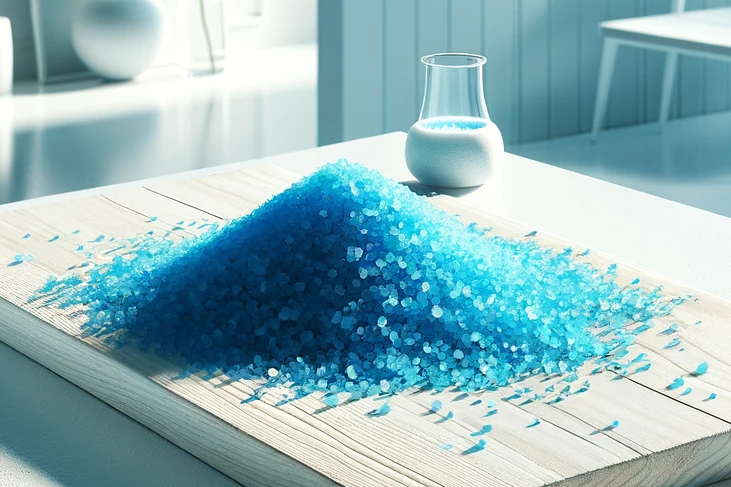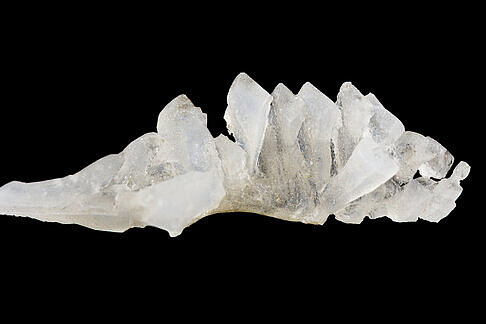Potassium nitrate

What is potassium nitrate?
Potassium nitrate (KNO3) is a naturally occurring mineral that is used in many industrial processes due to its properties. It is known for its role as an oxidizing agent in gunpowder as well as a preservative in some foods. The compound dissolves easily in water and is often used in agriculture as a fertilizer to provide plants with necessary nitrogen and potassium.
The role of potassium nitrate in dog nutrition
Preservative
In the food industry, potassium nitrate is used as a preservative to inhibit the growth of bacteria and extend the shelf life of products. However, its use in dog food is controversial and is regulated or restricted in many countries.
Potassium source
As a source of potassium, potassium nitrate could theoretically help to meet a dog's potassium requirements. Potassium is essential for maintaining normal body functions, including nerve transmission, muscle contraction and heart rhythm.
Benefits of potassium nitrate
- Shelf life extension: As a preservative, potassium nitrate can help extend the shelf life of dog food by inhibiting the growth of bacteria.
- Source of potassium: It provides a source of potassium, which can be important for a dog's health.
Possible disadvantages and risks
- Health concerns: Ingestion of potassium nitrate can cause health problems in dogs, including changes in blood counts and impairment of thyroid function. Long-term effects of exposure are poorly understood.
- Toxicity: At higher doses, potassium nitrate can be toxic, leading to problems such as methemoglobinemia, a condition in which the blood's ability to carry oxygen is impaired.
- Regulatory restrictions: Due to potential health risks, the use of potassium nitrate in dog food is strictly regulated or banned in many countries.
While potassium nitrate has useful applications in certain industries, the potential risks and disadvantages of its use in dog nutrition should not be underestimated. The health concerns and regulatory restrictions suggest that the disadvantages outweigh the potential benefits. It is important for dog owners to pay attention to the ingredients in dog food and choose products that are safe and beneficial to the health of their four-legged friends. Ultimately, it is advisable to favor alternative preservation methods and sources of potassium that are not associated with the same risks. A balanced diet that provides all the necessary nutrients in a safer way is the key to promoting your dog's health and well-being.
If you notice any signs of hypersensitivity or poisoning in your dog, you should see your vet immediately. We are not a substitute for a vet, but we try to be as accurate as possible. Every dog reacts differently and we recommend you get a second opinion or consult your vet if in doubt.
Stay healthy and take good care of your four-legged friend!😊
Similar to Potassium nitrate
Copper sulphate, chemically known as copper(II) sulphate, is an inorganic salt that occurs in various forms, with pentahydrate (CuSO4-5H2O) being the best known and most commonly used form. It is...
Magnesium sulphate is a chemical compound of magnesium, sulphur and oxygen. It is known for its many uses, from agriculture to medicine to animal care. For dogs, magnesium sulfate can be used both...
Zinc sulfate is a chemical compound that contains zinc and sulfur and serves as a source of zinc in various applications, including as a dietary supplement for animals. Due to its soluble...
Ammonium chloride is a chemical compound of nitrogen, hydrogen and chlorine. It forms white crystals that taste salty-sour. Ammonium chloride occurs naturally in volcanoes, minerals and plants....



